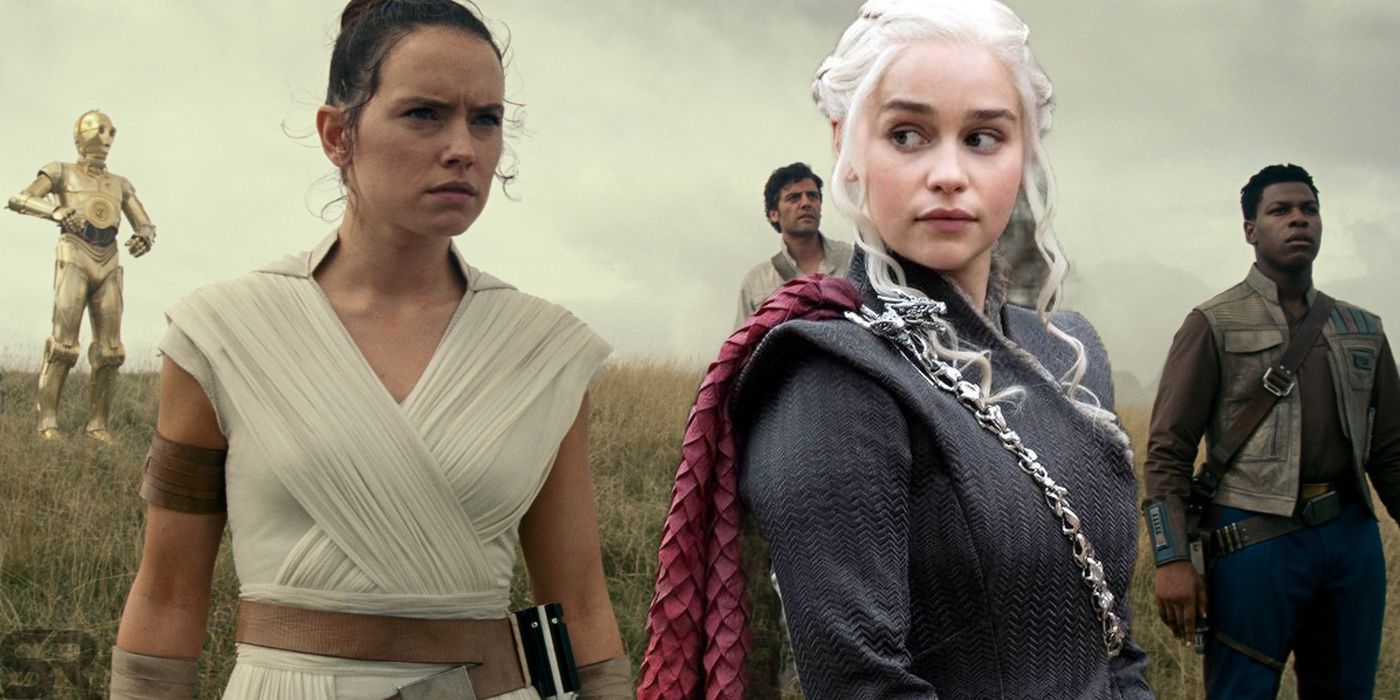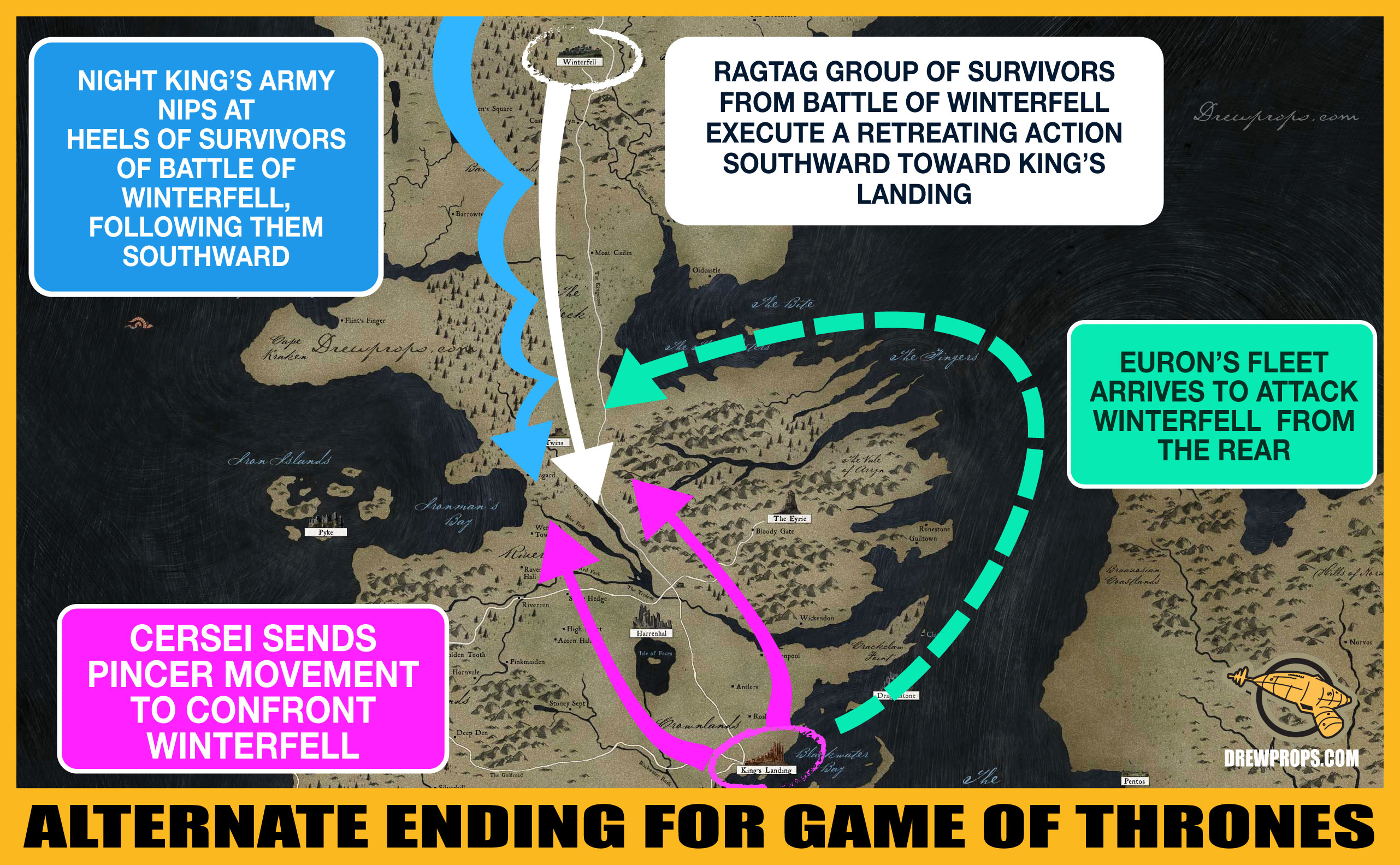Revisiting The Game Of Thrones Finale Controversy: A Comprehensive Analysis
The conclusion of Game of Thrones sparked global discussions, igniting passionate debates among both fans and critics. The much-anticipated finale of this iconic series evoked a wide range of emotions, from disappointment to admiration. As the series wrapped up its eight-season journey, its creators faced intense scrutiny for their narrative choices and character arcs. This article delves deeply into the controversy surrounding the Game of Thrones ending, examining the reasons behind the backlash, the creators' intentions, and the broader implications of the finale.
Since its debut in 2011, Game of Thrones has captivated audiences worldwide with its intricate storytelling, complex characters, and unexpected twists. Based on George R.R. Martin's A Song of Ice and Fire novels, the series became a cultural phenomenon, drawing millions of viewers globally. However, the final season, which aired in 2019, faced significant backlash due to pacing issues, character inconsistencies, and unresolved storylines.
This article aims to provide a detailed exploration of the Game of Thrones ending controversy, offering insights into the criticism it received, the creators' perspectives, and its lasting impact on the show's legacy. By analyzing both fan reactions and expert opinions, we will delve into the complexities of the finale and its enduring influence on the fantasy genre.
Read also:Discover The Ultimate Movie Streaming Experience With Vegamovies 3
Table of Contents
- Introduction to Game of Thrones
- Fan Reactions to the Ending
- Creators' Perspective
- Character Arcs and Decisions
- Plot Pacing and Structure
- Comparison with the Books
- Critics' Opinions
- Impact on the Fantasy Genre
- Future of the Series
- Conclusion and Takeaways
Exploring the World of Game of Thrones
Game of Thrones, created by David Benioff and D.B. Weiss, premiered on HBO in 2011 and quickly rose to become one of the most popular television series of all time. Adapted from George R.R. Martin's A Song of Ice and Fire novels, the show captivated audiences with its richly detailed world-building, political intrigue, and morally complex characters. Over the course of eight seasons, the series explored profound themes such as power, loyalty, and survival in the fictional realms of Westeros and Essos.
As the series approached its conclusion, anticipation among fans reached unprecedented levels. However, the final season, which aired in 2019, ignited widespread controversy due to its hurried pacing, character decisions, and unresolved storylines. Fans and critics alike questioned whether the creators had done justice to the intricate world they had meticulously constructed over nearly a decade.
How Fans Reacted to the Ending
The Game of Thrones ending controversy began almost immediately after the airing of the final season. Fans expressed their dissatisfaction through social media platforms, online forums, and fan sites. Many viewers felt that the pacing of the final season was rushed, with key plot points receiving inadequate attention. Furthermore, several character arcs, such as Daenerys Targaryen's descent into madness, were criticized for lacking proper development.
- Many fans believed that the final season failed to meet the high standards set by previous seasons.
- Some viewers criticized the showrunners for straying significantly from George R.R. Martin's original vision.
- Others expressed disappointment with the resolution of major storylines, particularly the fates of pivotal characters like Jon Snow and Tyrion Lannister.
The Creators' Perspective on the Finale
David Benioff and D.B. Weiss, the creators of Game of Thrones, defended their choices regarding the series' ending in interviews following the finale. They explained that the final season aimed to provide closure to the story while staying true to the themes explored throughout the series. They emphasized the importance of character evolution and the inevitability of change in the world of Westeros.
However, the creators also acknowledged the challenges of adapting such a complex story for television. With the series surpassing the source material in terms of plot progression, Benioff and Weiss were forced to make difficult decisions regarding character arcs and plotlines. Despite the backlash, they expressed pride in the work they had accomplished and the profound impact the series had on popular culture.
Analyzing Character Arcs and Decisions
The Controversial Arc of Daenerys Targaryen
One of the most contentious aspects of the Game of Thrones finale was the portrayal of Daenerys Targaryen. Once celebrated as the "Breaker of Chains" and a symbol of hope for the oppressed, her descent into tyranny left many viewers shocked. The showrunners justified this decision, arguing that it reflected the inherent dangers of power and its corrupting influence, even on the most idealistic individuals.
Read also:Hikaru Nagi The Voice Behind Unforgettable Anime Characters
Nevertheless, critics pointed out that Daenerys' transformation was not sufficiently foreshadowed or developed over the course of the series. Many fans felt that her actions in the final season contradicted her established character, making her arc feel forced and unconvincing.
Jon Snow's Journey and Its Conclusion
Jon Snow's storyline also faced scrutiny in the final season. After defeating the Night King and saving humanity from the undead threat, Jon's fate was left somewhat ambiguous. While some viewed his decision to leave Westeros and return to the North as a fitting conclusion to his character arc, others felt it lacked the emotional depth it deserved.
Moreover, the revelation of Jon's true parentage and its implications for the Iron Throne were criticized for being underdeveloped. Many viewers believed that this pivotal plot point deserved more screen time and exploration, rather than being confined to a brief moment in the series finale.
Examining Plot Pacing and Structure
One of the primary criticisms of the Game of Thrones ending was its pacing. The final season, consisting of only six episodes, felt rushed compared to previous seasons, which had ten episodes each. This abrupt shift in structure resulted in key plot points being glossed over or entirely skipped, leaving many viewers feeling unsatisfied.
For instance, the resolution of the war against the Night King was criticized for its brevity, with some fans arguing that it deserved a more epic and satisfying conclusion. Additionally, the political maneuvering in King's Landing felt hurried, with major decisions being made without sufficient explanation or buildup.
The Show vs. the Books: A Comparison
As an adaptation of George R.R. Martin's A Song of Ice and Fire novels, Game of Thrones faced the challenge of balancing fidelity to the source material with the demands of television storytelling. While the show initially closely followed the books, it eventually diverged significantly, especially in the final seasons. This divergence led to comparisons between the two mediums, with many fans expressing a preference for Martin's version of events.
However, it is worth noting that Martin himself has praised the show's adaptation, acknowledging the difficulties of adapting such a complex story for television. He has also expressed confidence in the showrunners' ability to bring the story to a satisfying conclusion, despite the differences in execution.
Critical Opinions on the Finale
Critics were divided in their opinions of the Game of Thrones finale. While some praised the show for its ambition and willingness to take risks, others criticized it for its pacing, character decisions, and lack of resolution. Many reviewers highlighted the challenges of adapting such a sprawling narrative for television, noting the inevitable compromises that had to be made.
Despite the mixed reviews, Game of Thrones remains one of the most critically acclaimed series of all time. Its impact on the fantasy genre and popular culture is undeniable, with its influence extending far beyond the small screen.
The Lasting Impact on the Fantasy Genre
Game of Thrones has had a profound and lasting impact on the fantasy genre, both in literature and television. By subverting traditional fantasy tropes and embracing complexity and ambiguity, the series redefined what audiences expect from the genre. Its success paved the way for other fantasy adaptations, such as The Witcher and The Wheel of Time, demonstrating the viability of the genre in the modern entertainment landscape.
However, the controversy surrounding the series' ending also highlighted the challenges of adapting complex narratives for television. It served as a cautionary tale for future adaptations, emphasizing the importance of pacing, character development, and narrative coherence.
The Future of Game of Thrones
Despite the controversy surrounding its ending, Game of Thrones continues to thrive through spin-offs and prequels. HBO has greenlit several projects set in the world of Westeros, including House of the Dragon, which explores the rise and fall of the Targaryen dynasty. These projects offer fans the opportunity to revisit the world of Game of Thrones and explore new stories and characters.
Additionally, George R.R. Martin continues to work on the remaining books in the A Song of Ice and Fire series, promising fans a different perspective on the events of the show. The interplay between the books and the show will undoubtedly continue to fuel fan speculation and debate for years to come.
Final Thoughts and Takeaways
The Game of Thrones finale controversy remains one of the most debated topics in modern entertainment. While the final season faced significant criticism for its pacing, character decisions, and lack of resolution, it cannot be denied that the series left an indelible mark on popular culture. Its impact on the fantasy genre and its ability to captivate audiences worldwide are testaments to its enduring legacy.
We invite you to share your thoughts on the Game of Thrones ending in the comments section below. Do you agree with the creators' choices, or do you believe the series could have ended differently? Additionally, we encourage you to explore our other articles on fantasy and television, where you'll find in-depth analyses and insights into the world of entertainment.
Article Recommendations


